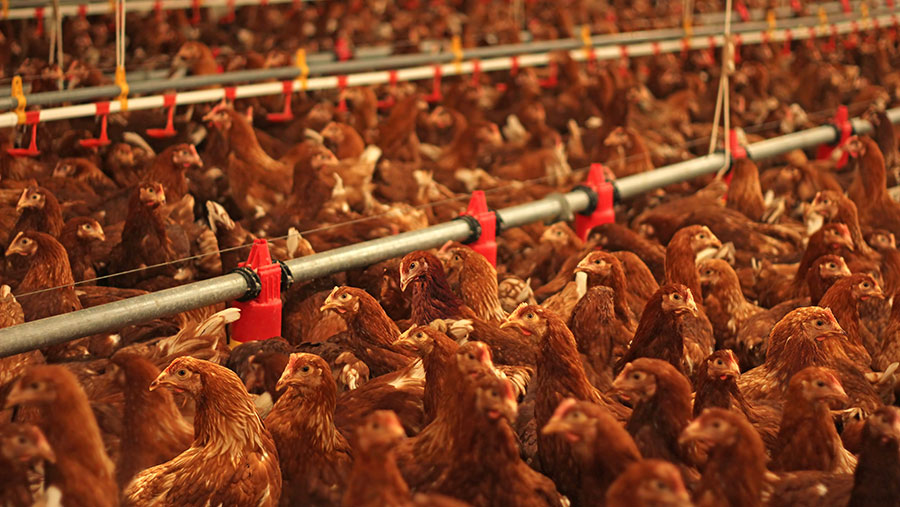Free-range eggs to be classified as ‘barn eggs’
 © Branex/Adobe Stock
© Branex/Adobe Stock Free-range eggs will have to be reclassified as “barn eggs” from next Wednesday (1 February), when the 16-week grace period since birds were first compulsorily housed comes to an end.
Norfolk, Suffolk and parts of Essex were the first region of England to have a housing order imposed on free-range flocks, on 12 October 2022, in an effort to slow the spread of avian influenza.
See also: Find out more about layer housing and handling
This was followed by an “all-England” housing order on 7 November, then one in Northern Ireland on 28 November, and finally one for Wales on 2 December.
Scotland has not imposed an order.
Even though the 16-week period is only expiring in East Anglia next week, the British Egg Industry Council has agreed that the whole industry should move as one, in order to avoid confusion.
As such, all eggs from housed birds in the UK, previously sold as free-range, will have to be identified as “barn” under the British Lion assurance scheme.
As part of this process, individual farmers have already been asked to stop printing their producer establishment numbers on eggs before they leave the farm.
This detail will be added at the Lion-registered packing centre, together with the number 2, from 1 February, to signify the eggs are now barn eggs.
From 1 February, all free-range boxes will also be labelled as “barn eggs”, though it is understood there will also be extra point-of-sale information explaining that hens are still housed to protect them from avian influenza.
Robert Gooch, chief executive of the British Free-Range Egg Producers’ Association, said he did not expect any drop in prices as a result of the change.
“Retailers are set to hold prices the same, as they have done on the two previous occasions we’ve been in this situation,” he said.
“The current shortage of eggs makes this even more certain.”
